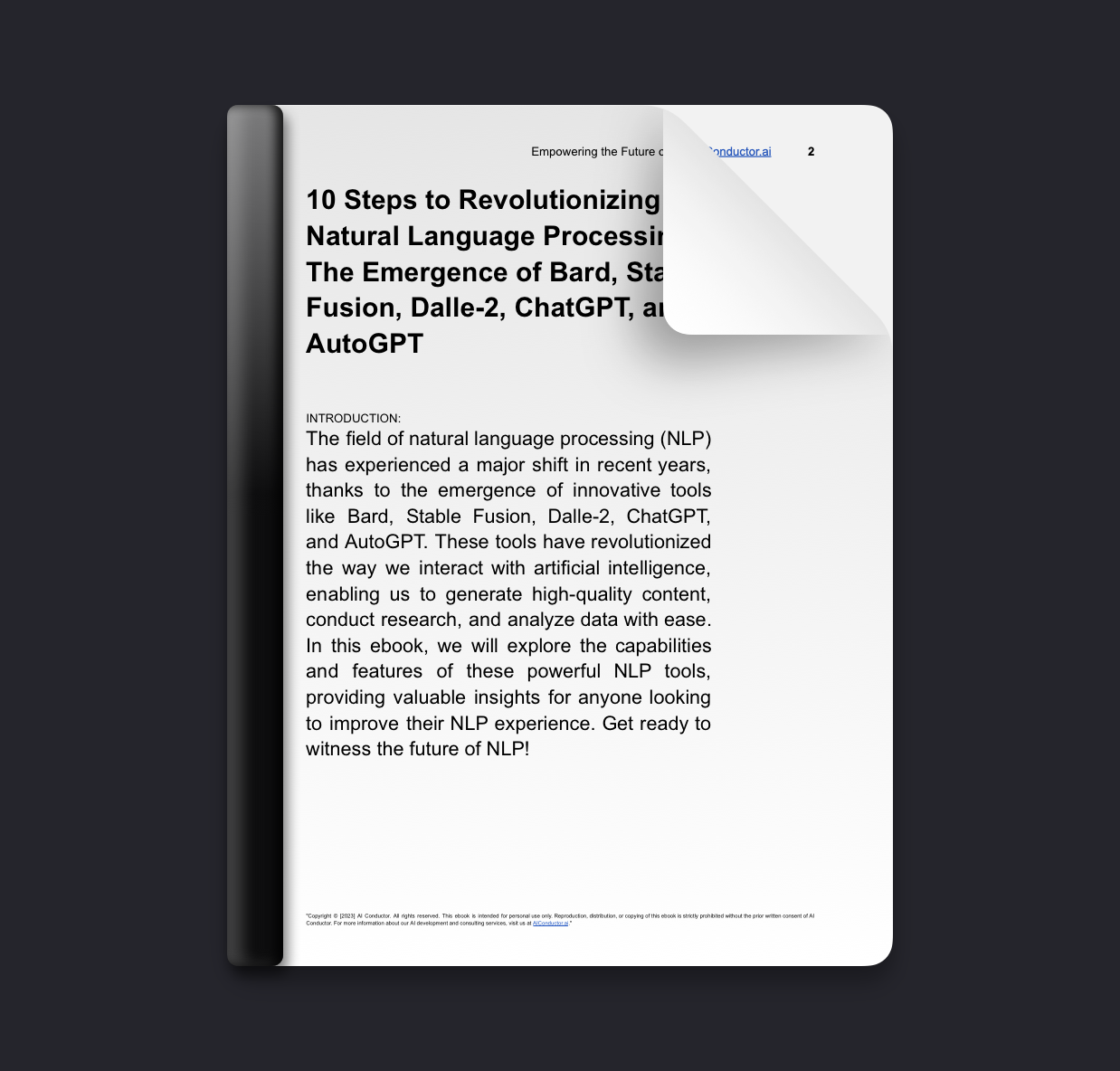We asked:
How can we harness the power of the latest AI developments discussed at Davos23 to drive positive change in society and address pressing global challenges?
Simplified Overview:
The World Economic Forum's Davos23 highlighted the biggest AI developments and how to harness their potential. Discussions centered on responsible AI deployment, ethical considerations, and the need for collaboration between governments, businesses, and academia.
Insider Look:
Welcome to the future! The World Economic Forum recently held its annual conference in Davos, Switzerland, and AI was one of the most discussed topics. AI is a rapidly growing technology that has transformed the way we live, work, and interact with the world. This post will highlight the biggest AI developments that were discussed in Davos and how to use them.
1. Natural Language Processing (NLP)
NLP is a branch of AI that focuses on interaction between humans and computers. It is used in chatbots, smart speakers, and virtual assistants. In Davos, experts highlighted the importance of NLP in providing personalized solutions to users. Businesses can use NLP to analyze customer feedback and tailor their products and services to meet their needs better.
2. Computer Vision
Computer vision is an AI technology that can recognize and analyze images and videos. It is used in facial recognition, object detection, and self-driving cars. One of the most discussed topics in Davos was the ethics of computer vision. With the increasing use of facial recognition, experts urged the need to address privacy concerns and ethical standards.
3. Reinforcement Learning
Reinforcement learning is a type of machine learning where an AI system learns by trial and error. It involves giving the system the freedom to explore different options and learn from feedback. In Davos, experts discussed how reinforcement learning can be used to solve complex problems such as climate change, healthcare, and poverty.
4. Explainable AI
Explainable AI is an emerging field that aims to make AI models more transparent and understandable. It involves developing algorithms that can explain how they arrived at a particular decision or prediction. In Davos, experts discussed how explainable AI can help build trust in AI systems and prevent bias and discrimination.
In conclusion, AI is transforming the world as we know it, and the developments discussed in Davos are only a few examples of what the future holds. Businesses and individuals alike can benefit from these developments by incorporating AI into their operations and remaining up-to-date on the latest advancements. As we continue to take advantage of the benefits of AI, it is crucial to address ethical concerns and ensure that these technologies are used for the greater good.
1. Natural Language Processing (NLP)
NLP is a branch of AI that focuses on interaction between humans and computers. It is used in chatbots, smart speakers, and virtual assistants. In Davos, experts highlighted the importance of NLP in providing personalized solutions to users. Businesses can use NLP to analyze customer feedback and tailor their products and services to meet their needs better.
2. Computer Vision
Computer vision is an AI technology that can recognize and analyze images and videos. It is used in facial recognition, object detection, and self-driving cars. One of the most discussed topics in Davos was the ethics of computer vision. With the increasing use of facial recognition, experts urged the need to address privacy concerns and ethical standards.
3. Reinforcement Learning
Reinforcement learning is a type of machine learning where an AI system learns by trial and error. It involves giving the system the freedom to explore different options and learn from feedback. In Davos, experts discussed how reinforcement learning can be used to solve complex problems such as climate change, healthcare, and poverty.
4. Explainable AI
Explainable AI is an emerging field that aims to make AI models more transparent and understandable. It involves developing algorithms that can explain how they arrived at a particular decision or prediction. In Davos, experts discussed how explainable AI can help build trust in AI systems and prevent bias and discrimination.
In conclusion, AI is transforming the world as we know it, and the developments discussed in Davos are only a few examples of what the future holds. Businesses and individuals alike can benefit from these developments by incorporating AI into their operations and remaining up-to-date on the latest advancements. As we continue to take advantage of the benefits of AI, it is crucial to address ethical concerns and ensure that these technologies are used for the greater good.
Key Takeaways:
Story Highlights in 3 words:
AI, Developments, Implementation
Winners & Losers:
Pros:
1. AI can help businesses and industries become more efficient and productive, leading to increased profitability and growth.
2. AI can improve healthcare by providing more accurate diagnoses and personalized treatment plans.
3. AI can help solve complex societal problems, such as climate change and poverty, by analyzing large amounts of data and identifying patterns and solutions.
Cons:
1. AI can lead to job displacement, as machines and algorithms replace human workers in certain industries.
2. AI can perpetuate biases and discrimination if not programmed and monitored properly.
3. AI can pose a threat to privacy and security if data is mishandled or used for malicious purposes.
Bottom Line:
Artificial intelligence (AI) is a technology that allows machines to perform tasks that typically require human intelligence, such as recognizing speech, making decisions, and solving problems. At Davos 2023, experts discussed the biggest AI developments and how to use them to benefit society while addressing potential ethical concerns.

Ref.
Join The Conversation!





